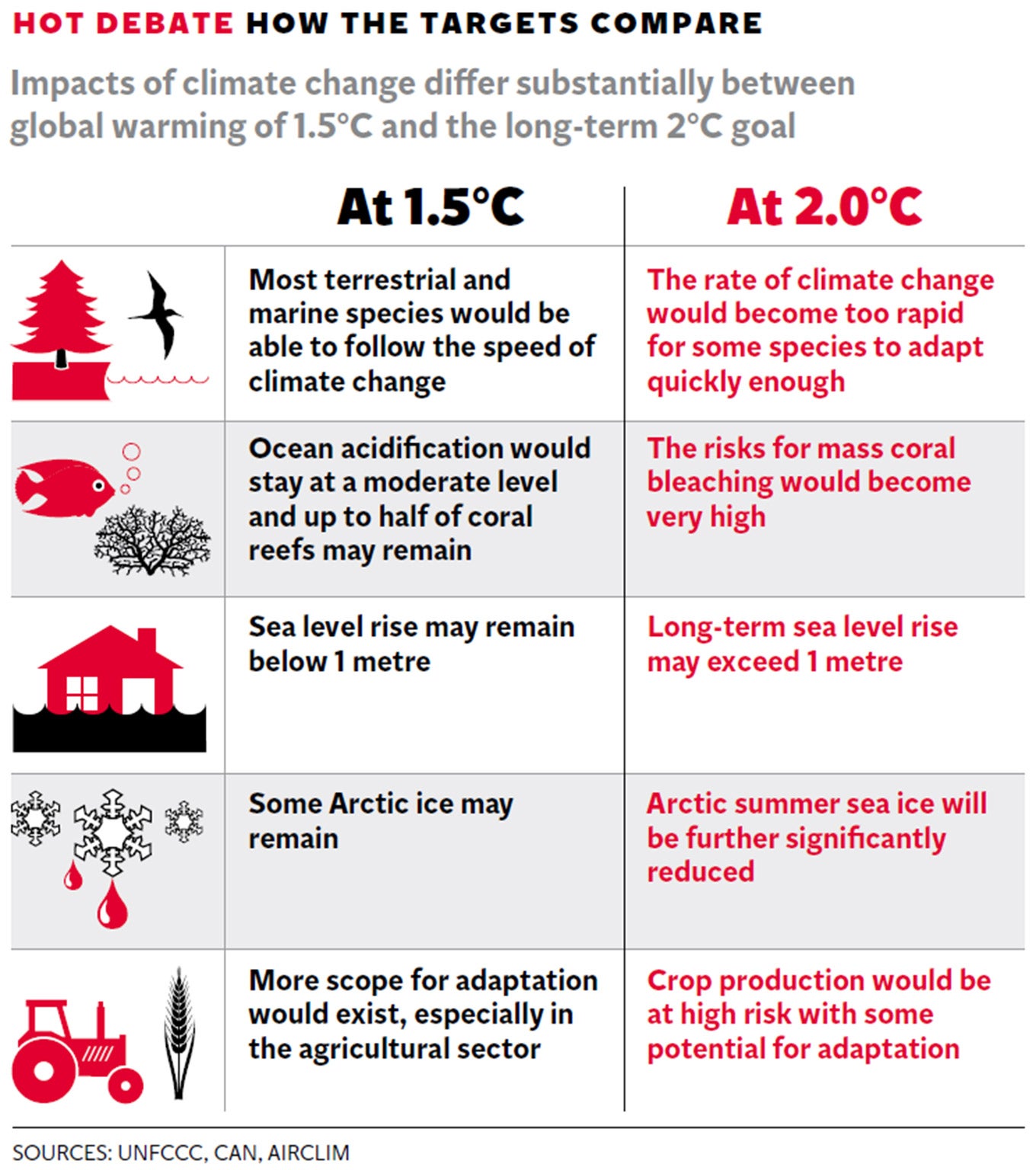COP21: Support grows for limiting warming to 1.5C amid claims 2C 'is not safe'
Even meeting existing goal would mean disaster for small island nations

Dozens of countries are demanding that the long-standing goal of limiting global warming to 2C be discarded – and replaced with a far more ambitious target of 1.5C.
The idea is rapidly gaining momentum at the UN climate change summit in Paris this week as ministers from around the world are persuaded that a 2C rise would spell disaster for many countries in low-lying or hot regions – most of them developing nations with little money to limit the damage.
The call comes a month after scientists revealed that the world has already warmed by 1C since pre-industrial times. This means that time is rapidly running out if the temperature increase is to be limited to 2C, let alone 1.5C.
Research carried out in preparation for the Paris summit concluded that 1.5C of warming was vastly preferable to 2C. At the same time, a significant number of scientists believe the 1.5C target is still just about achievable with radical action, lending credibility to calls for a tougher target.
“There is no question that 1.5C would be hard to achieve but it is the right target for the world to aim for,” Thoriq Ibrahim, Environment Minister for the Maldives, told The Independent.
“Already at 1C above preindustrial levels we are experiencing life-altering changes, such as severe erosion, deadly cyclones, and record tides: 1.5C is the scientifically understood safe level for warming,” added Mr Ibrahim.
He is also chairman of the 44-nation Alliance of Small Island States which stretches across much of the world and includes Cuba, the Bahamas, Jamaica and Singapore.
Low-lying and hot regions are not the only areas which would be threatened even if global warming were limited to less than 2C but more than 1.5C. This is because the temperature increases associated with climate change will be uneven, with the biggest rises set to be in the Arctic.

“We’re pushing for 1.5C or even less. A lot of our residents depend on seals, caribou and Arctic char for their livelihoods,” Peter Taptuna, the premier of Nunavut, a semi-autonomous Inuit province in Arctic Canada, told The Independent.
“Already we’re seeing droughts that are affecting spawning grounds for Arctic char and a drastic decline in caribou numbers, and climate change is a factor. In some areas we’re getting summer droughts and in the winter time a lack of snowfall. And in some parts of the north we’ve lost roads and we’ve lost schools as they sink into melting permafrost,” he added.
Dr Carl-Friedrich Schleussner, a scientist who worked on the UN Intergovernmental Panel on Climate Change’s (IPCC) research, said there is just time to hit a 1.5C target.
“The window for limiting warming to 1.5C is still open, but closing fast. And 2Cis simply not safe. The impacts, such as extreme heat and long-term sea-level rise, would be substantially reduced under 1.5C,” Dr Schleussner said.
About 100 countries, including France and Germany, have declared their support for a 1.5C target in recent days. A spokesman for the Department of Energy and Climate Change said yesterday that the UK was “open to a reference to a 1.5C goal in the final deal”.
But many of the countries who produce or burn large quantities of fossil fuels are against reducing the target, with Saudi Arabia and Venezuela strongly opposed.
Meanwhile, India’s Environment Minister, Shri Prakash Javadekar, said he had no problem with a 1.5C target so long as the rich, developed countries make the additional emissions cuts that would be required to meet it.
Join our commenting forum
Join thought-provoking conversations, follow other Independent readers and see their replies
0Comments